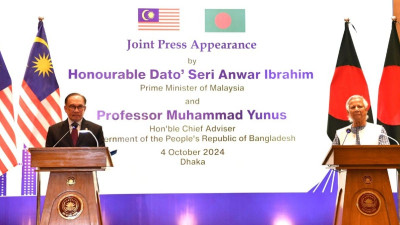 Photo: Reuters
Photo: Reuters The Biden administration will not renew a temporary
humanitarian entry program for hundreds of thousands of migrants with U.S.
sponsors who arrived in recent years, the U.S. Department of Homeland Security
said on Friday.
Some 530,000 migrants from Cuba, Haiti, Nicaragua and
Venezuela have entered the U.S. by air since October 2022 and received two-year
grants under the "parole" program that will begin to expire in coming
weeks.
The Biden administration will not renew a temporary
humanitarian entry program for hundreds of thousands of migrants with U.S.
sponsors who arrived in recent years, the U.S. Department of Homeland Security
said on Friday.
Some 530,000 migrants from Cuba, Haiti, Nicaragua and
Venezuela have entered the U.S. by air since October 2022 and received two-year
grants under the "parole" program that will begin to expire in coming
weeks.
Immigration is a top voter issue in the Nov. 5
election that will pit Democratic Vice President Kamala Harris against Republican
Donald Trump, who has criticized the parole program.
The decision not to renew the parole program for the
four nationalities follows the plan outlined by DHS when the program was
launched, spokesperson Naree Ketudat said in a statement.
Migrants without permission to remain in U.S.
"will need to depart the United States prior to the expiration of their
authorized parole period or may be placed in removal proceedings," Ketudat
said.
Other parole programs for Ukrainians and Afghans have
been extended.
Most of the four nationalities allowed entry under the
so-called CHNV parole program have avenues to stay in the U.S.
Many Cubans are eligible for permanent residence and
eventual citizenship under the 1966 Cuban Adjustment Act.
Most Haitians and Venezuelans in the U.S. are eligible for Temporary Protected Status, which grants them deportation relief and work permits.






